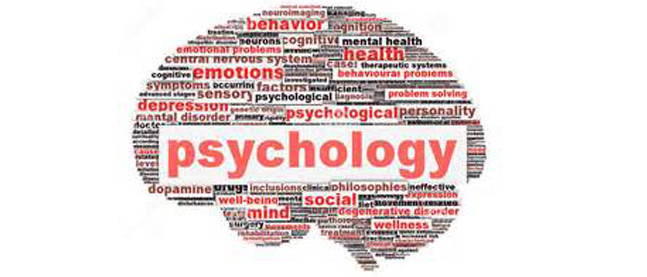Psychology

Curriculum Statement: Psychology
Through Social Sciences, young people develop their understanding of the world by learning about other people and their values, in different times, places and circumstances; they also develop their understanding of the environment and how it has been shaped.
Curriculum Aims:
Psychology is the study of the human mind and behaviour; it is connected to every person and every part of society around the world. It’s the subject that allows you to learn about yourself and your behaviours, through taking part in experiments like “Can you spot the liar?” and “Love quiz – what type of romantic relationship will you have?” We also love to debate in Psychology, from time old arguments such as “Nature or Nurture – what controls our behaviour?” to newer debates like “Should we be continuing to develop artificial intelligence?” These activities help students grow in confidence in their ability to communicate effectively and believe in their views. Psychology is also about understanding others and building empathy – we learn about individuals who have had difficult upbringings, mental health disorders and extreme violent behaviours. As a subject, we are constantly updating and learning, bringing in real life examples from newspapers, documentaries and through personal experiences.
Psychology is a fascinating subject which allows students to have a better understanding of themselves and the behaviours of others. They will begin to see beneath the surface and many of their own views and assumptions may be challenged by what they discover. In particular, the aim of the Psychology curriculum at the John Henry Newman Catholic School is to:
- support the development of strong British values and Catholic Social Teaching by encouraging students to think about the moral, social and ethical implications of Psychology;
- promote a love of learning of Psychology and develop their curiosity, so that students engage with the information they are learning;
- develop greater empathy, tolerance and understanding of people – understanding the different circumstances which can influence their behaviour;
- encourage students to question and critically analyse information they are given, to be able to form their own opinions based on evidence - and to debate opposing views;
- support students in the development of applying their knowledge beyond the classroom through the constant use of real life examples and cross-curricular applications;
- ensure students achieve mastery of the skills required to advance to the next stage of their education;
- prepare students for the world of work by highlighting career opportunities within Psychology, as well as ensuring they develop key literacy and oracy skills;
- enable students to further their Catholic faith in an atmosphere of trust, tolerance and a sense of community which is fostered through strong relationships in the classroom.
Curriculum features:
To achieve these aims, a thoughtful learning programme has been established to ensure the students develop all the skills they need to excel in Psychology at A level to be able to succeed in their future education but also develop skills for the working world. The lessons are quick-paced and use a variety of activities to engage all students and activate their full learning potential - from classroom debates of the Nuremberg trials to physical demonstrations of a basketball game to demonstrate how synapses work. The students are encouraged to voice their opinions within each topic, with the understanding of mutual respect within the classroom and that every opinion matters. The textbook knowledge is merely a foundation to help students to branch off into their own independent learning using resources from documentaries to work experience. The key focus of every lesson is that students are at the centre of their own learning and each student is taking their own path to achieve in Psychology.
Co-curricular Experiences:
The study of Psychology complements many sixth form subjects, from Biology to Economics, due to the literacy, mathematical and scientific skills required for the course. Students are invited to attend a criminology conference to show the links between Psychology, Sociology and Law. Many students go on to study Psychology at university and continue to develop their passion for the subject.



